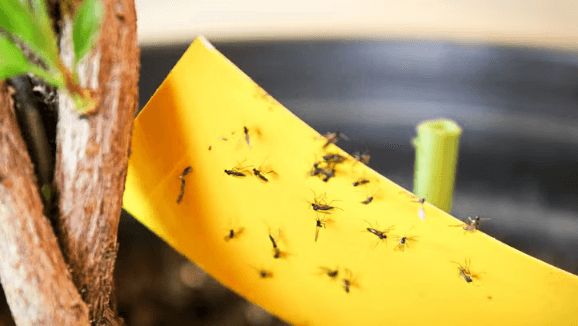Discover the Surprising Smells Gnats Hate and Keep Them Away for Good

Have you ever been outside, enjoying a sunny day, only to be swarmed by those pesky gnats? They seem to come out of nowhere, and before you know it, they’re all over you. Gnats can turn a pleasant day into a frustrating one, but did you know that certain smells can keep them at bay? Yes, that’s right! There are scents that gnats absolutely hate, and you can use them to your advantage. Let’s dive into the world of gnat-repelling aromas and find out how you can reclaim your outdoor spaces.
The Power of Essential Oils
Essential oils aren’t just for relaxation and aromatherapy—they can be your best friend in the fight against gnats. Some oils have strong scents that gnats find unbearable. Here are a few of the top contenders:
- Lavender Oil: Not only does lavender smell amazing, but it also repels gnats. Simply mix a few drops with water in a spray bottle and spritz it around your outdoor seating areas. Bonus: it also helps to keep mosquitoes away!
- Peppermint Oil: Peppermint has a fresh, invigorating scent that gnats despise. You can make a DIY spray by mixing peppermint oil with water and a bit of witch hazel. Spray it around windows, doors, and other entry points to keep gnats from coming inside.
- Eucalyptus Oil: This oil has a strong, medicinal scent that gnats can’t stand. Add a few drops to a diffuser or make a spray to keep gnats away from your porch or patio.
Common Household Items to the Rescue
You don’t always need fancy oils to repel gnats. Some everyday items can do the trick just as well:
- Vinegar: Gnats are drawn to the smell of apple cider vinegar, but once they’re close, it can trap and kill them. You can make a simple gnat trap by filling a small bowl with vinegar and adding a few drops of dish soap. The soap breaks the surface tension, causing the gnats to drown.
- Lemon and Cloves: Cut a lemon in half and stick some cloves into the flesh. Place the lemon halves around your outdoor dining area to keep gnats away. The combination of citrus and clove scent is too much for them to handle.
Natural Plants as Gnat Repellents
Did you know that certain plants can repel gnats naturally? Incorporating these plants into your garden can help reduce gnat populations:
- Basil: Not only is basil great for cooking, but it also repels gnats. Plant some basil around your patio or keep potted basil plants nearby to enjoy a gnat-free zone.
- Marigolds: These bright, cheerful flowers do more than just look pretty—they also emit a scent that repels gnats. Plant marigolds in your garden or place potted marigolds on your porch.
- Rosemary: This fragrant herb is another gnat deterrent. Keep potted rosemary plants around your outdoor spaces, or plant it in your garden to enjoy its gnat-repelling properties.
Tips for Maximizing Gnat Repellents
To get the most out of these gnat-repelling scents, here are a few additional tips:
- Keep it fresh: Scents can fade over time, so be sure to refresh your sprays, traps, or plantings regularly to maintain their effectiveness.
- Combine forces: Don’t rely on just one method. Use a combination of essential oils, household items, and plants to create a multi-layered defense against gnats.
- Clean up: Gnats are attracted to food scraps and standing water. Keep your outdoor areas clean and free of debris to reduce the likelihood of gnat infestations.
Read Also: Extension Patio Roof Ideas
By incorporating these gnat-repelling scents into your outdoor routine, you can enjoy a gnat-free environment and make the most of your time outside. So next time you’re gearing up for a backyard barbecue or a relaxing evening on the porch, remember these tips and say goodbye to those annoying gnats for good!






